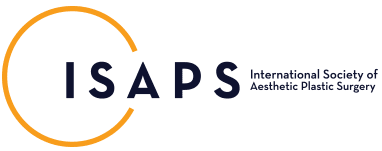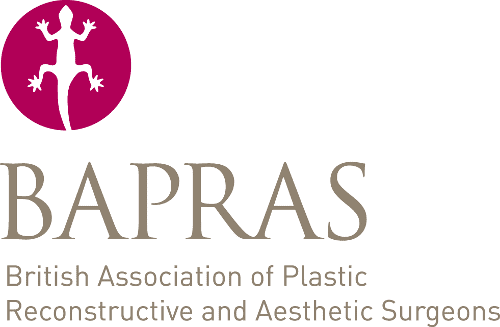Appointments
Booking a Consultation
Mr Sabbagh sees Adults and paediatric patients at a number of hospitals in and around London. Adults can be seen at the Cromwell Hospital (Kensington, London), Hadley Wood Hospital (Barnet), Princess Margaret Hospital (Windsor) and the Runnymede Hospital (Chertsey, Surrey).
Paediatric patients can be seen at the Cromwell Hospital or Princess Margaret Hospital. Mr Sabbagh has weekly clinics in all of the above hospitals.
The Cromwell Hospital is well-served by various transport links, whether you are coming on foot, by public transport or by car. The closest underground stations are Earl’s Court, Gloucester Road Station and High Street Kensington. There is no hospital parking but there are parking meters on the road just outside the hospitals and car parks close by. All the other hospitals have on ground parking facilities.
To arrange a consultation, please complete the enquiry form and you will be contacted by Nadine (Mr Sabbagh’s PA) on the following day who will deal with your query and arrange an appointment. Online consultation can also be arranged but in many cases, it is better to follow this by a face-to-face consultation to examine the ear and assess the quality of the skin and ear cartilage.
It is recommended to prepare a list of all the questions you have regarding the surgery and bring it along to the consultation.
Mr Sabbagh speaks English and Arabic fluently. For patients who are unable to speak these languages it is recommended to bring along an interpreter to the consultation.
Consultation fees are due prior to attending the consultation. Payment can me made either by phone or via a bank transfer.
Booking Surgery
Mr Sabbagh performs surgery at the Cromwell Hospital (London), Hadley Wood Hospital (Barnet) and the Runnymede Hospital (Chertsey, Surrey). Paediatric surgery is only performed at the Cromwell Hospital.
After attending for consultation, a total quote will be sent to you by e-mail of the cost of surgery. The total cost always includes the surgical fees, hospital fees, anaesthetist fees (if applicable) and all necessary follow up management. Surgery can be scheduled by arranging an appropriate date with Nadine, Mr Sabbagh’s PA.
Once a date has been scheduled a booking form is submitted to the hospital admissions department who will in turn communicate directly with you regarding preparation for surgery, nursing pre-assessment, pre-surgical tests and exact time of admission. The hospital is responsible for collecting the hospital fees which are usually paid shortly before or on the day of admission.
Payment of surgical and anaesthetic fees are paid prior to surgery. Payment can be made by card or bank transfer. There are no charges for follow up appointments after surgery, dressings or removal of sutures. You will be fully refunded if you decide to cancel your surgery.
Pre and Post Surgery Advice
Before Surgery
In the majority of cosmetic ear operations local anaesthetic is appropriate and there is no need to stop eating or drinking prior to your surgery. For reconstructive ear surgery a general anaesthetic is usually needed and you will be advised by the hospital when to stop eating and drinking.
You will be asked to discontinue aspirin medication seven days before surgery, Warfarin four days. Because of the increased risk of thrombosis in patients who have major surgery under general anaesthetic when on the contraceptive pill and hormone replacement therapy, you are strongly advised to stop taking these medications six weeks before the date of your operation. You may resume two weeks after the surgery.
You are strongly advised to stop smoking for two weeks before surgery. This is because nicotine is a vasoconstrictor (narrows the blood vessels) and can therefore have a negative impact on wound healing. This also applies to E-cigarettes which contain nicotine.
Please arrive on time, as you will need to be registered at reception, seen by the nursing staff and by your anaesthetist (if you are having a general anaesthetic or intravenous sedation.). Mr Sabbagh will see you before you go to theatre and go through all the points that were discussed at the consultation.
It is best to arrive freshly bathed, without makeup or skin preparations, and with clean hair. You should wear comfortable cloths garments which is easily removed.
You are advised to arrange to be picked after surgery and not to drive home. This is because there will be a bandage for the first night and possible discomfort which could make driving unsafe. It would also be possible, in most circumstances, to use public transport to get home after surgery.
Covid-19
Currently all patients undergoing surgery will need a PCR Covid-19 swab 3 days before surgery and they will be asked to self-isolate after the swab till admission. The swabs are arranged by the hospital where the surgery is planned. For those patients who live far from the hospital a local PCR swab can be arranged by the patient and result sent to the hospital.
After Surgery
Mr Sabbagh will always review you on the ward prior to discharge. The ears are inspected and a bandage re-applied for overnight dressing. Pain killers are given in hospital (Paracetamol and Neurofen are usually sufficient and codeine can be added if needed.). All surgical wounds are covered with antibiotic ointments and cotton wool and you do not need to worry about cleaning the wound or change of dressing.
It is recommended to take regular pain killers for the first 48 hours, after which, it depends on the level of discomfort and analgesia can be taken as needed. It is advisable to elevate the head after ear surgery and having two or three pillows at night is sufficient for this.
The bandage placed following surgery can be removed the next day and a soft elasticated headband will be provided to be worn at night and during the day if desired. You can resume many gentle daily activities from day 1 after surgery. It is even possible to do light work or return to the office within 2-3 days You will be asked to keep the wounds dry till your first review with Mr Sabbagh which will be one week after surgery. After this you will be able to wash the area with a gentle shampoo. External stitches are usually dissolvable and do not need to be removed.
A soft head band is recommended to be worn at night to protect the ear for four weeks. During the day it is not necessary but may be preferable for children as they are accident prone or in adults if they are in a dusty environment. This can be removed as needed. You will be given a further appointment at 3-4 weeks with Mr Sabbagh to inspect the wound and check the healing progress. Most scars take three months to reach full strength, and during this period are active, red and a little raised. After this they fade and flatten: this full maturation process usually takes nine months to one year but varies according to individual skin types.
Physical Activity and Sport
Following cosmetic ear surgery most of physical activities that involve no contact can be resumed after the second week although less vigorously. These include jogging, cycling and gym. Such activities would not affect the healing or the surgical outcome however strenuous exercise may increase swelling to the ears and patients are advised not to return to their pre-operative level till 4 weeks have passed. Swimming in the pool / sea should be avoided in the first 3 weeks to avoid exposure to any bacteria whilst the ear is healing. Special precautions would need to be taken for contact sports such as football and rugby. Competitive football can re-start after 4 weeks and rugby after 6 weeks and it would be prudent to protect the ears with a sport headband or a rugby cap for up to 3 months. Sports that involve more significant contact and possible blows to the ears, such as boxing and martial arts, a delay of 3 months from surgery is recommended and the ears should be protected for up to 6 months.



